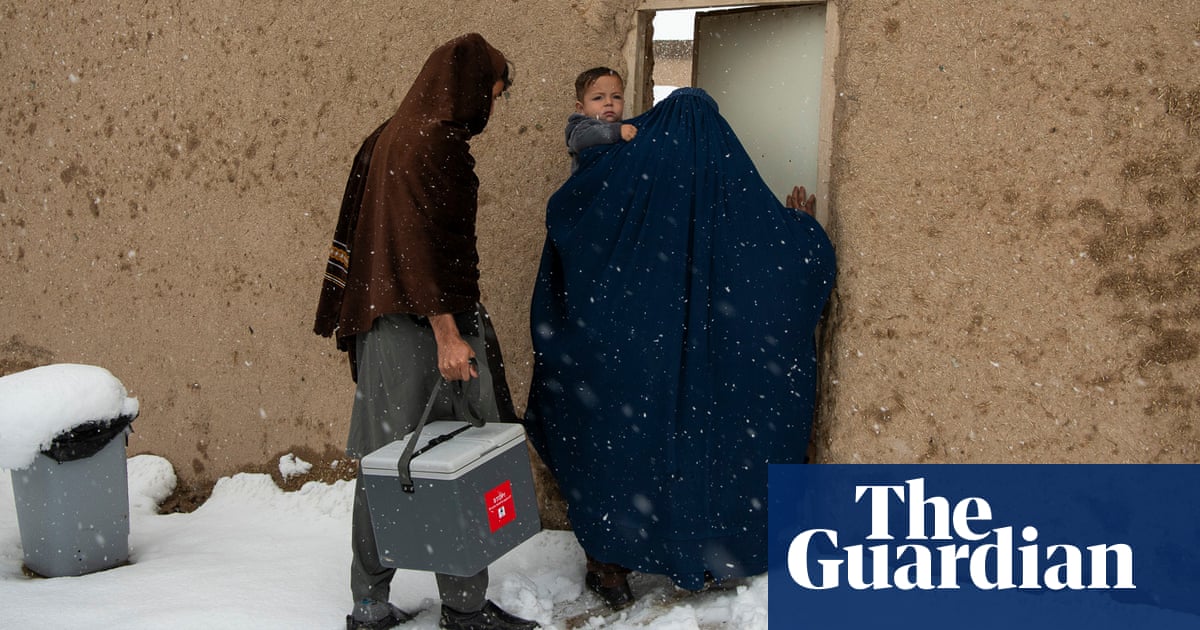Reem Alali is still reeling from the news that the brutal regime she fled eight years ago has collapsed, leaving her and her family with feelings bordering excitement and trepidation. Moreover, there is a sense that important decisions have to be made – but perhaps not just yet, and only with great caution.
“We didn’t sleep for two nights,” she said on Monday, a day after Bashar al-Assad, the former dictator, fled Syria following rebels’ lightning-speed advance into the capital, Damascus. “We have been glued to our phones, speaking to Syrian friends and relatives, crying and drinking glühwein with our German friends.”
Alali and her husband, Amin, have been “constantly talking to each other about the one big question: do we go back or not?”, she said.
The 38-year-old from Suwayda, south-western Syria, lost her father, uncle and two cousins in the war and then sought refuge in Germany in 2016. After the astonishing events of the past few days, she has come to a conclusion: “I will not take my children to Syria until I really know the situation is a lot better.”
That caution was echoed by the UN special envoy for Syria, Geir Pedersen, who told reporters on Tuesday that while many Syrians were eager to return, prudence was essential: “There are livelihood challenges still. The humanitarian situation is disastrous. The economy has collapsed.”

Amin, 40, a journalist in Syria who now works as a company technician, arrived in Germany in 2015, one of the large number of Syrians who were given sanctuary under Angela Merkel’s decision to keep the country’s borders open to them. His perilous journey was by car via Turkey, boat to Greece, and a month-long trek by foot from Greece to Germany.
He and Alali are among the estimated 975,000 Syrian nationals living in Germany, according to the country’s central register of foreigners. In the first 11 months of this year, more than 72,000 people from Syria applied for asylum. Many of the refugees who came in 2015 now have German citizenship, while hundreds of thousands have a temporary residence permit.
“If the situation develops positively, lots of Syrians will want to return,” said Tareq Alaows, a spokesperson for refugee policy at the organisation Pro Asyl.
Calls by the opposition CDU/CSU, viewed by many as overhasty and insensitive, have already been made to encourage Syrians in Germany to return home. This was interpreted by analysts as electioneering ahead of February’s snap election, as the conservative alliance attempts to stave off the far-right populist Alternative für Deutschland (AfD) – which has risen in popularity partly by stoking anxiety around Syrian refugee arrivals.

As Germany joins other European countries such as Sweden, Italy and the UK in saying it will put all asylum cases from Syria on hold, Alali said she was relieved that her family – including her two sons, seven and 10, both born in Germany – were granted an unlimited residency permit three years ago. They submitted applications for German citizenship in October.
“The situation is so precarious in Syria, not knowing what will be,” said Alali, who worked as a legal assistant in Syria and is now a teaching assistant in Potsdam, a city just west of Berlin. “I asked my boys – who speak and write German fluently, and speak but cannot write in Arabic – ‘would you like to go there?’ They said, ‘maybe for the weekend, Mama – but then we want to return to Germany, our home’.”
Mahmoud Zamel, 26, from Homs, western Syria, who arrived in Germany aged 17 in 2015, was one of thousands who celebrated the toppling of Assad on the streets of Berlin on Sunday, with fireworks and beeping car horns. To mark the occasion he painted the cheeks of his five-month-old daughter with the Syrian flag. German friends compared the euphoric scenes to those when the Berlin Wall fell.
“I hope my daughter will know a Syria different to the one in which I grew up,” said Zamel, a pastry chef from the southern Berlin district of Neukölln, recalling how, as an 11-year-old, he was trained to protect his family from government forces with a Kalashnikov. “I grew up in a world where it was forbidden to let the word ‘freedom’ pass your lips, even though it was written on our hearts,” he said. “We came here and suddenly we could let the word out as loudly and as often as we wanted. For that we will be ever grateful to Germany, and to Merkel.”
Other than the desire to “pursue al-Assad” for the many Syrians killed under his watch, Zamel said it was too early to make plans for the future. “We must wait to see when it’s safe, then the males will go back and start to rebuild.”

Madian, 22, who is studying for his Abitur or final secondary school exams in the town of Wittenberge, north-eastern Germany, called the fall of Assad “the best day of my life”. He hails from Darayya, a suburb of Damascus that was the scene of heavy fighting during the civil war, including mass killings by government forces subsequently defined as a massacre. His family lost their home in a bomb attack in which his father was seriously injured and a cousin left paralysed.
Now, he said, he hoped to be able to return to visit his homeland in two or three months. “My parents, who are in their 40s, are already talking of going back and starting again, building a new house … But I want to first of all complete my schooling here,” Madian said, talking of his plans to embark on a career in IT or medicine in Germany. He, too, is waiting on an application for German citizenship.
Aromas of butter pastry, pistachios and rose water waft through the Damaskus Konditorei on Sonnenallee, established in 2016 by Syrian artisan bakers forced to flee Homs. Behind the counter, a beaming Amin Al Shebli, 30, who arrived in Germany four years ago after a traumatic prison experience, said for the first time in years he and his fellow Syrians were able to breathe and dream.
“I don’t know the future, but everything is better than Assad,” he said, handing pistachio and chocolate sweetmeats for free to visitors. “Now Syrians can start to live again, to think not just about how to live from hand to mouth, or living in constant fear and needing to weigh up every single word, because all the walls have ears.”
He would struggle, however, to return home at this stage with his young family, his children aged two and four. “We would have to start from scratch. It would be tough. We’ll have to see,” he said.
Wassim, a food technician who came to Germany on a treacherous journey via boat with his brother in 2015, now has citizenship and lives in Brandenburg with his wife, a pharmacist, and their son. He was on his way back from Syria where he had been witness to the current chaos and was anxious to return to his family. “It is really too early to say what might happen, whether it will be safe. I am holding my breath,” he said in a voicemail message on Monday.
Alali said she was grateful that in her adopted homeland she had been able to build a life that would not have been possible in Syria. She hoped Germany, “as a country which has vast experience with the destruction of war and how to begin to think of a life thereafter”, would continue to support Syria as it attempted to rebuild.

.png) 3 months ago
38
3 months ago
38













































